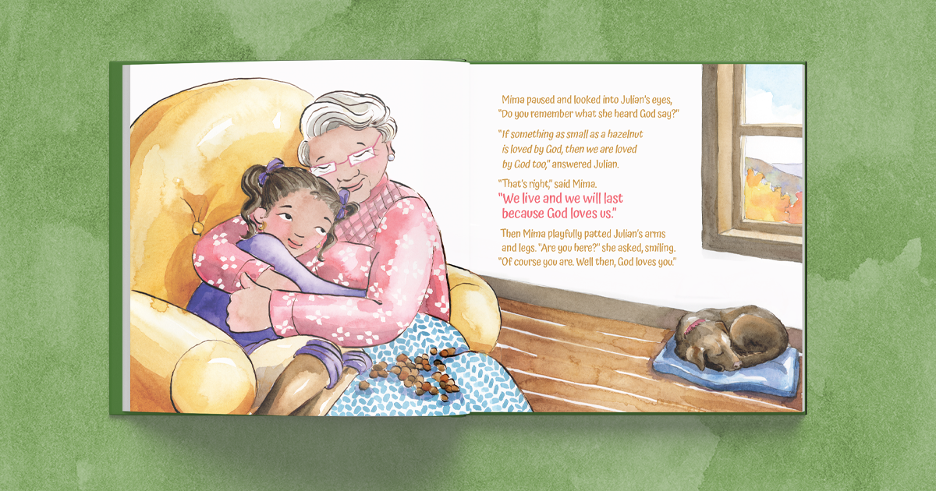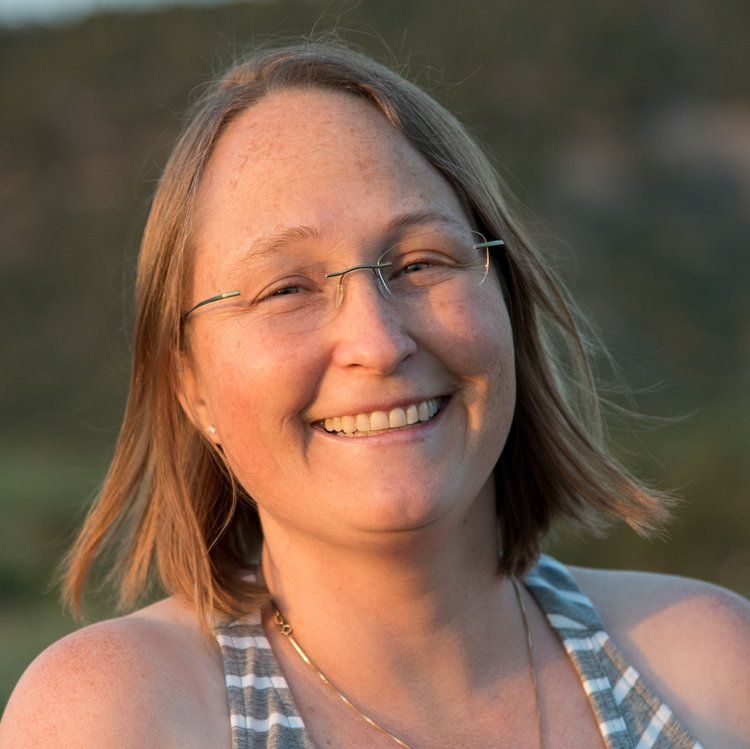All Will Be Well: Presence Not Platitudes
Aug 15
/
Lacy Finn Borgo

When Jeremy’s uncle died his parents were at a loss of how to tell him. They were unsure what their eight-year-old son could understand about death or how he might respond. Well-meaning family and friends shared a wide range of advice. Suggestions ranged from not telling Jeremy unless he asked, to telling him that “God needed his uncle in heaven.”
The children’s picture book All Will Be Well: Learning to Trust God’s Love explores this very real experience of grief in the life of a family. While we, adults, search for the right words, our tender presence is what is most needed. When a child has experienced death in their community, we share the hard news in a simple and clear way and welcome their response, whatever it may be. Children need to know that we are willing and available to hear their questions, their sorrows and even their fears.
Children also need reassurance of their safety. Platitudes fall short of the needed assurance and serve the anxiety of the person who shares them, rather than the child who is hurting and confused. It’s essential to attend to our own anxiety so that we don’t saddle children with it. Being tender with our own sorrows and the fears that death unearths serves us and the children in our lives.
The fourteenth century Christian mystic Julian of Norwich offers a bit of wisdom. Through a vision she learned that, even in the midst of the pandemic of her time, God’s love prevailed and because of God’s love all would indeed be well. The reality that painful things happen and paradoxically that all will be well is a stretch for young minds (and honestly, old minds, too). We help children learn this paradox by making space for their response to pain and reminding them that they are safe.
In All Will Be Well the point is made clear through a vision of a hazelnut that existed simply because God loved it. “We live and we will last because God loves us.” Even when someone we know dies, they are safe in God’s loving presence, just as we are.
Jeremy’s parents gathered him into their arms and began, “Jer, we have something sad to tell you.” They shared a few simple facts about his uncle’s death and then asked if Jeremy had any questions. They said that questions were always welcome. They shared a few sentences around their own feelings of sadness and said it was ok to feel sad or angry or anything else. Jeremy was silent at first and then he cried. Both parents cried a bit with him.
They affirmed God’s love and care for Jeremy and his uncle. With their presence they spoke words of safety and loving kindness. For the next few weeks Jeremy sometimes stepped back into previous developmental levels, like using baby talk and testing boundaries. His parents knew these were requests for attention and safe boundaries, which they lovingly gave him. They invited Jeremy to help choose pictures for the memorial service slide show. Jeremy loved remembering his uncle and being included in this honoring event.
Months later seemingly out of the blue, Jeremy asked for a picture of his uncle. He put it in a box he kept of special things, which included a Darth Vader prized Lego piece, shells from a family vacation, and a picture of Jesus with children. Sometimes Jeremy asked questions about what happens to bodies when someone dies, wanting astounding details. Sometimes he wandered into existential questions around why God lets people die and if dogs go to heaven. His foray into existential waters was only brief, but it was clear. Knowing that these are the kinds of question that we live our whole lives and even draw us towards God, his parents advised him often, “Jer, that sounds like a great question to ask God, who loves you very, very much.”
Maybe you or someone you know would benefit from having a book that helps adults walk with children through death and grief. Lacy invites you to pre-order her book through Amazon or IVPress, release date is October 4th.
Lacy invites spiritual directors who would like to learn the ministry of spiritual direction with children by applying to be a part of her Spiritual Direction with Children Cohort in January 2023 or if you are an International spiritual director apply to be a part of her Spiritual Direction with Children International Cohort in January 2023.
Lacy invites parents, grandparents, teachers, pastors or anyone who would like to learn about a child’s inner life with God and how to encourage children to recognize and respond to their God encounters to join her in her course, Children's Spirituality: Listening to God Together.

Lacy Finn Borgo
Lacy Finn Borgo, DMin, teaches and provides spiritual direction for various organizations in spiritual formation and spiritual direction including, Renovaré, The Companioning Center and Mercy Center, Burlingame. Lacy has a spiritual direction and supervision of spiritual directors ministry for adults, and provides spiritual direction for children at Haven House, a transitional facility for families without homes in Olathe, Colorado. Her book Spiritual Conversations with Children: Listening to God Together was released March 2020. Her children’s book All Will Be Well was released October 2022. Lacy lives on the Western Slope of the Rocky Mountains and worships with a local Quaker Meeting. https://www.GoodDirtMinistries.org

